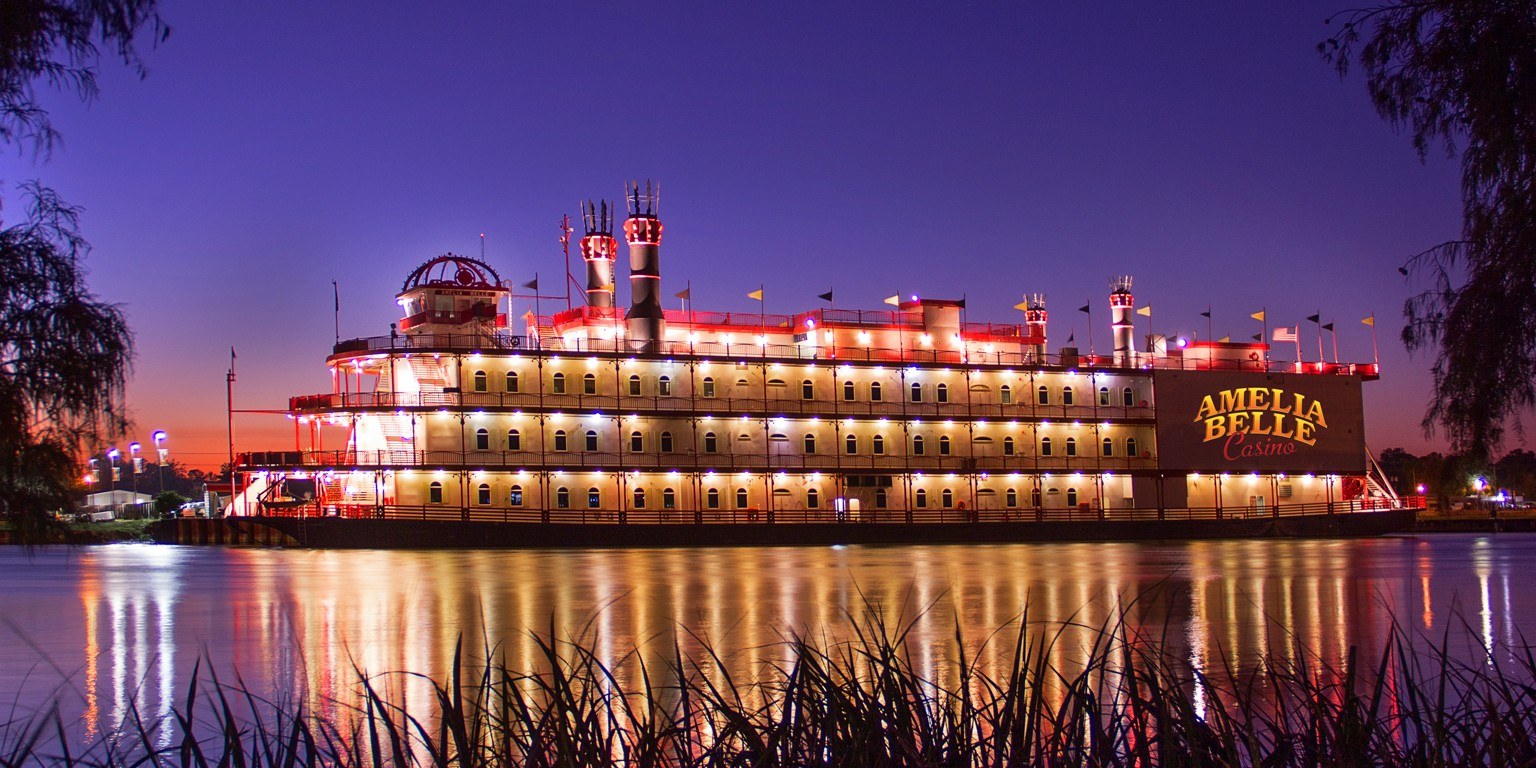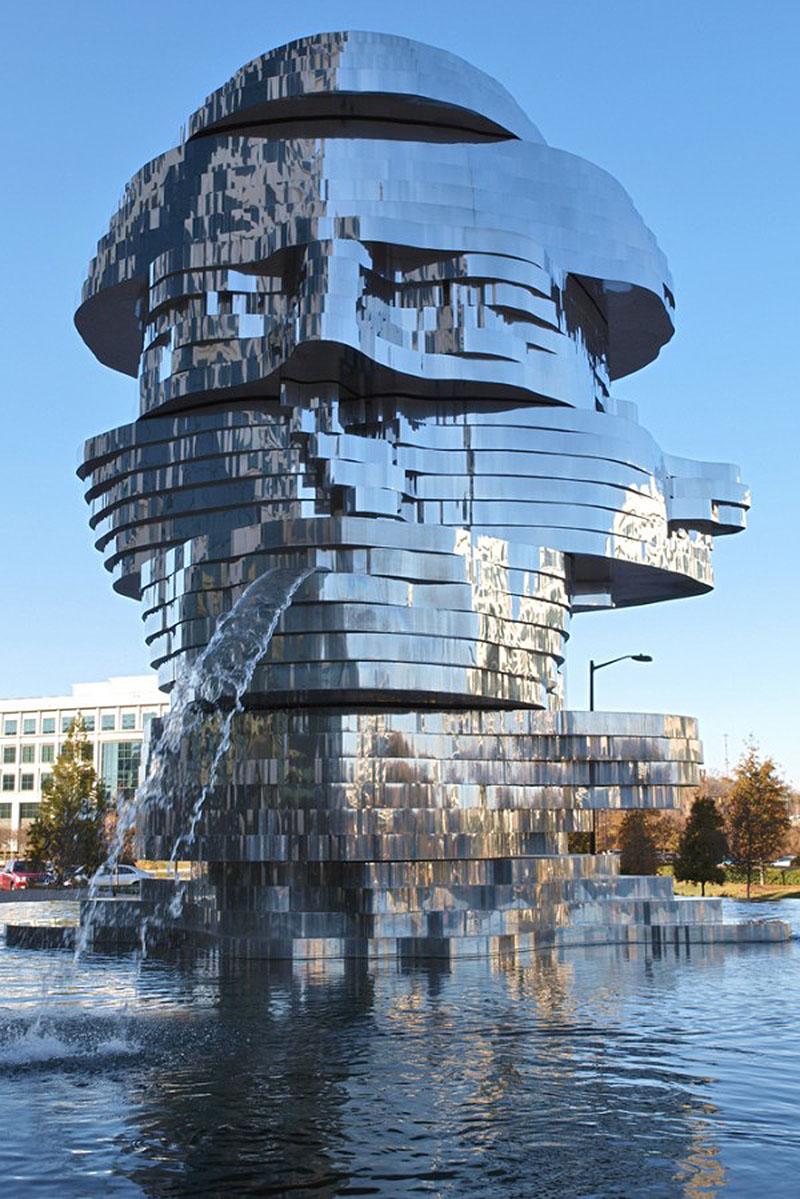Do Louisiana Casinos Have To Be On Water
Other casino operations must depart for open water on scheduled runs before customers may begin gambling. Still other states have stipulated the actual design of the boat. For example, in Louisiana riverboats must duplicate the historic paddlewheelers in order to qualify as legal gaming facilities. Try your luck at some of the best Louisiana Casinos. Stay & play at one of 4821 casino hotels in Louisiana and let the games begin. Louisiana casinos are required to be located on bodies of water. There are currently 15 Louisiana casino licenses for commercial operations. Five casinos in Shreveport. Four casinos in Lake Charles. There are three casinos in Baton Rouge and New Orleans. Harrah’s New Orleans is the exception to this rule. Sam's Town riverboat casino on the Red River, Shreveport, Louisiana. A riverboat casino is a type of casino on a riverboat found in several states in the United States with frontage on the Mississippi River and its tributaries, or along the Gulf Coast. Several states authorized this type of casino in order to enable gambling but limit the areas where casinos could be constructed; it was a type of legal fiction as the.
Why casinos are on the water is a common question. The truth is, casino gambling in the United States has a complicated history, one that aims to balance morals with income. The central locations for gambling in the US are Las Vegas, Atlantic City, Lake Charles, and a multitude of casinos that exist on Native American tribal lands. There are also several riverboat casinos on the nation’s waterways that started appearing in the early 1990s.
So, why are casinos on water? Casinos in several states are located on water to limit their geographical and social impact while providing income for the state. For example, states along the Mississippi River and the Gulf Coast opted for water-based instead of land-based ones to help sway public opinion in their favor.
Thehistory of casinos being on riverboats is based on the laws of theland. Once the profitability of Nevada’s casinos and those based onNative American land was apparent, other states wanted to cash intoo. Consequently, riverboat gambling became a balanced solution tothe battle between social policy and money.
Early History of Gaming on Riverboats
The earliest steamboats quickly allowed gambling on board because there wasn’t much else to do. Passengers passed the time away playing cards. It was inevitable that money would be put on the table during these riverboats cruises. Gambling became rampant on Mississippi riverboats back in the 1800s. Although it wasn’t official, law enforcement-endorsed gambling, it did set the precedence of the concept.
Iowa was the first state to legalize riverboat gambling in the early 1990s, and several states such as Mississippi, Missouri, Illinois, and Louisiana followed suit shortly after that. At the time, betting on the boats was designed to limit the economic and geographical scope of gambling. The aim was to receive a steady flow of income without increasing crime and encouraging illegal behavior.
Early riverboat casinos were highly restrictive, allowing gambling only to take place during a short cruise – usually lasting a couple of hours. Gambling was only allowed once the boat left the dock and was sailing. Usually, it had to be three miles away from shore before gambling could commence. Laws tried to keep these gambling cruises akin to the touring journeys that were already taking place on the waterways. As such, in Iowa at the time, a riverboat casino could only sail a maximum of 100 times per year.
To circumvent social decomposition, states also set limits on how much could be gambled during each cruise. They did so by setting modest loss limits for its patrons. Typically, it was set to a value between $200 to $500. The idea was that if you limited the money that could be gambled, it would keep profits small enough that the mob, which ran Las Vegas at the time, would not infiltrate these smaller gambling establishments.
However,as competition increased and the popularity and acceptance ofriverboat casinos increased, all these rules stated to relax.
Native American’s Landmark Case

There was an explosion of legalized gambling in the early 1990s following a Supreme Court Ruling allowing casinos on Native American tribal lands. As a result, several states wanted to open casinos while minimalizing organized crime and making a profit from legalized gambling.
The current gambling infrastructure in the United States owes a lot to the Native Americans and their pursuit of legalized gambling on their land. This was possible due to the fact that Native American land is sovereign and, therefore, not subject to the laws of the United Staes. Sovereign doesn’t mean that anything goes on Native American land, though. If actions on the area hurt the American public – US federal laws apply.
Thelegalization of gambling on Native American land started in the1980s. At the time, tribes with reservations had lost the vastmajority of their preexisting Federal aid under the Reaganadministration. The exception to this trend, however, was a fewCalifornian tribes that operated bingo parlors on their land.California, which outlawed gambling, sought to cease this activity asthey didn’t want their citizens gambling. While some wealthy peoplebet big, most gamblers are poor or become destitute through theirgambling habits. California wanted to prevent these bingo parlorsfrom negatively affecting their economy by creating a moresignificant gap to the lower class.
To fight back against the state, the leader of the Cabazon tribe, Arthur James Welmas took the case all the way to the Supreme Court. In 1987 he won the ruling and sparked the creation of the Indian Gaming Regulatory Act (IGRA) in 1988. The implications of this law were that Native Americans could use their land for a casino if the state it was in allowed any form of gambling, including the lottery. It also gave the Federal government oversight to the gaming industry on these lands. The purpose of the ruling was to prevent these casinos from being infiltrated by organized crime.
Most Casinos on Boats Today
Casino Riverboats became increasingly popular, and competition grew. The limits on gambling relaxed, and the length of cruises increased. Quickly. Coast guards got frustrated with the casino evening cruises flooding the waterways.

Contemporaneously, the casino owners were searching for a way for gambling to be allowed on their boats over more extended hours. Likewise, casino customers didn’t like the cruise aspect of their casinos. They didn’t want to leave the dock for a set period of time. As a result, riverboats started to be moored on the edge of the river, and are termed boats in moats.
Today, most water-based casinos do not move. Some are now stationary buildings that float on water blocks and are not designed to float at all.
Final Thoughts

/cloudfront-us-east-1.images.arcpublishing.com/dmn/NOMJW4UFHVHETMDPKGBDS3IEZY.jpg)
Many casinos exist on waterways in the United States as a workaround to local opposition to legalized gambling. It’s a practice that started in the early 1990s after the Supreme Court allowed gambling establishments on Native American lands in states that had any form of gambling, including the lottery. Riverboat casinos were seen as a compromise to allowing income without creating too much social decline.
Over time, restrictions on their operations were removed, meaning they no longer had to be away from the dock to function as a casino. Nowadays, casinos are on water due to history, rather than for the purpose of sailing.
Related Questions
In Which States is Gambling Legal?
Nevada and Louisiana are the only two states that allow state-wide casino-style gambling. Other states restrict gambling to specific geographical areas. For example, Atlantic City hosts New Jersey’s gambling fraction, whereas in Missippissi keeps most of its casinos to Tunica.
Several states restrict gambling to boats on the water, although they are often moored and no longer travel. You could argue that any state that has a lottery allows some form of gambling. That would mean only two states completely prohibit the act – Hawaii, and Utah.
Online gambling is far more regulated. You cannot partake in interstate gambling of sports (Federal Wire Act of 1961 prohibits it). However, no clear law exists banning online gambling; instead, it illegalizes the monetary transaction of funds to an online gambling provider. It gets a bit confusing, but California, Delaware, Illinois, Iowa, Nevada, New Hampshire, New Jersey, Pennsylvania, Rhode Island, and West Virginia all allow some form of online gambling. It best to check current laws as legislation in this area is continuously evolving.
:max_bytes(150000):strip_icc()/128400050-56a205f85f9b58b7d0c5cc95.jpg)
How Big is the Gambling Industry In the United States?
Why Do Louisiana Casinos Have To Be On Water
Gambling is a massive industry in the United States, and it is currently worth over $240 billion annually. In 2017 the gross revenue was over $158 billion, and the industry employed 1.7 million people across 40 states. In tax revenue, it generated $8.85 billion in local and state taxes. The vast majority of profit is made in commercial casinos ($41.2 billion) and tribal casinos ($32 billion). The rest is generated by card rooms, lotteries, bookmaking, pari-mutuel wagering, and charitable games and bingo.